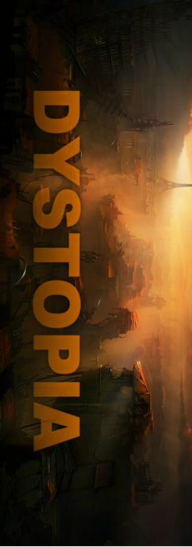Sign up for FlowVella
Sign up with FacebookAlready have an account? Sign in now
By registering you are agreeing to our
Terms of Service
Loading Flow

Traits of Dystopian fiction
Many works of literature and film featuring dystopian societies exhibit at least a few of the following traits:
1) The society is an illusion of a perfect utopian world.
2) There is some kind of story or just rumors of a war, revolution, uprising, spike in
overpopulation, natural disaster or some other climatic event which resulted in
dramatic changes to society.
3) We often see a standard of living among the lower and middle class that is
generally poorer than in the contemporary society.
4) The protagonist is a person who questions or challenges his/her society.
5) Because dystopian literature takes place in the future, it often features
technology more advanced than that of the contemporary society. Usually, the
advanced technology comparable to or more primitive than what we have today.
6) For the reader to engage with it, dystopian fiction typically has one other trait:
familiarity. It is not enough to show people living in a society that seems
pleasant. The society must have echoes of today, of the reader’s own
experience. If the reader can identify the patterns or trends that would
lead to the dystopia, it becomes a more involving and effective experience.
Authors can use a dystopia effectively to highlight their own concerns
about negative or dangerous social trends.
